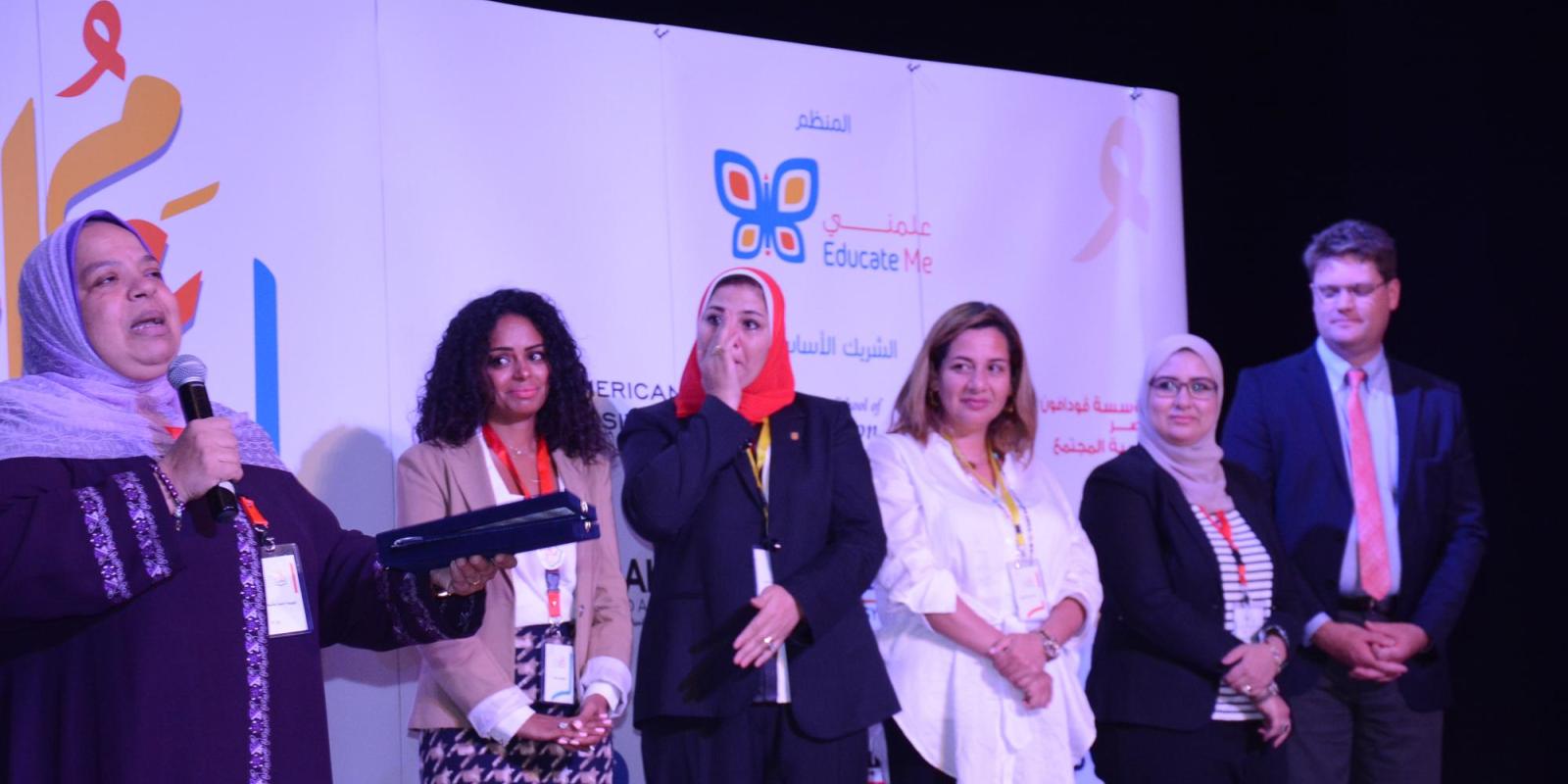
Graduate School of Education, Educate Me Partner to Reform Public Schools
Sharing a common goal and vision, AUC’s Graduate School of Education (GSE) and Educate Me Foundation recently partnered in holding the first Moallem, or Teacher, conference, bringing together Egyptian public school teachers, GSE instructors and AUC faculty members to introduce innovative strategies for education reform in Egypt.
“We both agree that the best investment in education is teaching quality,” Ted Purinton, dean of the Graduate School of Education, reflected. “It's a perfect match. GSE provides the scholarly foundations; our NGO partners are the hands within the communities and the schools. Working together allows us to have a much broader impact.”
The conference seeks to introduce pioneering approaches that correlate with worldwide changes in the 21st century and can apply to education reform in Egypt. “Public school teachers in Egypt have many great ideas, and they are eager to learn new strategies and techniques,” said Purinton. “The Moallem conference provided a unique and timely venue for this dialogue to take place.”
Founded in 2010, Educate Me is a nonprofit organization that holds a unique “learner-centered, skills-based” education model for developing public schools and training teachers across Egypt. At the conference, President Francis J. Ricciardone praised the NGO’s efforts. “Educate Me foundation’s work holds great value in Egypt, and we anticipate its success in education across the region," he said.
Minister of Education and Technical Education Tarek Shawki also addressed attendees, encouraging them to work collaboratively on reforming education in Egypt. He emphasized the need for teamwork in their mutual objective and highlighted the substantial and primary role of teachers in the process, placing them as the top priority in the ministry’s plan for reform.
“Some of the upcoming plans, which are expected to be actualized in the next year, include digitalizing curricula, restructuring teacher academies and operating under international school systems,” Shawki explained. Moreover, he highlighted leading projects at the ministry, including change at the high school level and cooperation with international universities.
Emphasizing the importance of exploring new strategies, Provost Ehab Abdel-Rahman noted, “The process of development depends chiefly on teacher training, preparing and guiding the next generation and learning from the experience of our predecessors.”
The conference featured a multitude of workshops, many of which were facilitated by GSE instructors, who are also staff members at AUC’s Center for Learning and Teaching. “The teachers who attended are eager to improve their practices, so we made sure they received exceedingly high-quality professional development through innovative workshops,” Purinton explained. “The range of topics was broad, and the teachers walked away feeling as if this was the best professional development they had ever received during their careers.”
Among the topics covered were social innovation, children's passions, simplification of scientific curricula, integration and impact of technology in the classroom, alternative education, humanistic methodologies in teaching, assessment and evaluation, arts and culture in schools and dealing with learning disabilities.
Purinton urged the importance of every teacher’s active role in the process. “Too often, we see policy implementation in education that does not recognize the realities of school circumstances. As a result, reforms are thwarted,” he explained. “In organizational theory, we call this the ‘street level bureaucracy’ problem. When a policy is implemented in a top-down fashion, the street-level implementers – teachers – inevitably adapt the policy to the situation. What we really want to see, instead, is that teachers are part of the policy dialogue and see themselves as being integral to reform.”
